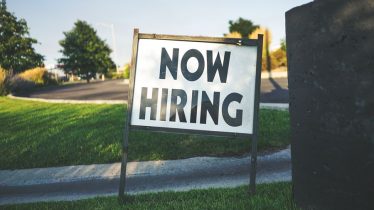How Long You Should Stay At Your First Job Out of College
The amount of time you should stay at your first job out of college depends on why you are leaving. However, if your just trying to stay long enough to make it notable on your resume, one year of experience will usually suffice. With there being so many reasons to leave your job, below are a list of options that may better suit your situation.
Why the One Year Length is Good
If you’ve been looking into this question for a while, it might be common you hear one year as a recommended length. The reason one year is common because you have to think from the hiring manager’s perspective. One year on the job shows you can be a good hire to companies because they would love the perfect candidate to stay as long as possible. However, If you’re last job was only for two months, they would feel like you would be a risk being hired because they’d possibly have to look for another employee again in two months or less.
Following this further, if a hiring manager were to see you’ve been at a job for only two months, they may ask why such a short stay with the job. As opposed to just assuming you would not be a good fit for the new position. As a result, for all of the considerations below, try to put yourself in the hiring manager’s shoes and try to understand what they are looking for.
General First Job Changing
Next is the general job change just because you want something different or you don’t like the work. If you are just wanting to do something new, you can leave your first job out of college as soon as you have a new source of income ready to replace it. For example, if you’ve been at a job for four months, you could have been hired at a new job while still at your first. As a result, you can smoothly transition to job number two since you have already been qualified and selected.
Pursuing this further, any cons of leaving your job early have already been negated when you were hired for job number two. You would only have an issue if you tried to quote you have experience from job number one (four months of experience) after job number two (current new job), as you were interviewing for job number three. This brings us to the next point, experience.
Staying Long Enough for Job Experience
As we lightly mentioned in the last point, if you plan to qualify for a new job using experience from your current job, you may want to stay long enough for the experience to be relevant at the new job. One way to know for sure how long to stay at a job when experience is important is to look at the job requirements. Each job has a job descrition and criteria to be a good candidate. The new position may tell you, you must have two years of experience to be hired for the new opening.
Why Time and Experience are Important
Time and experience are important because they could give you the edge above another candidate proving that you are a better pick. However, if you did not get enough experience, or time on the job, your experience may not be relevant.
Time and Experience Example
For example, if you were being considered for a manager position, three months experience with a group of eight employees may not sound impressive. However, nine months of experience as a manager of 45 employees obviously sounds better. Although the nine month experience candidate did not hit one year, they seem to be more qualified since the job had a greater responsibility. This was all used as an example to say, time and experience in a job position is relevant to the position. Ensure you stay with your job long enough for your learning experience to seem relevant to the position you are applying for.
Staying Long Enough to Pass the Interview
If you’re still unsure how long you should stay at your first job, trying to stay long enough to ensure you can answer the interview questions related to your new position. Sometimes even if your resume does not seem the best, the way you respond to your hiring manager can give you an advantage over other applicants.
For example, if your new job is an entry level position, ensure you stay with your first job long enough to gain the knowledge to answer basic job specific interview questions. This is important because during your interview, the hiring manager may test your knowledge on the subject to ensure you are a good fit. Unless they ask you general questions about how you work with people, they will definitely be able to measure your expertise based on how you answer job related questions.
Leaving Your Job After You’ve Replaced the Income
Lastly, if you’ve found a great job and just don’t know when you will ever leave, the best time will be when you’ve replaced the income. When most people get their first job, it’s likely the fastest offer and if they are fortunate enough, it’s a keeper! As a result, you may plan to stay for the long haul. But before you decide to stay for the long haul be sure to see these five bad things about a job.
Staying Long Enough to Retire
So if you’ve choosen to stay for the long haul, the common length in that case would be until you retire. This would mean, you stay at your first job until you hit your 60’s. However, I don’t believe this is what you likely had planned for your first job. Especially, since you are about to learn how you can get retirement benefits sooner.
Staying Until You Have New Money
The best option which is more secret to the average person is to completely replace your job’s income! Once you have replaced the income, you will have no need for your current job and probably never need to work for someone ever again for that matter. To get more details about strategies like these visit our post called “The Rich getting Richer and Poor getting Poorer” for all the details. Once you learn the financial techniques of the rich, you will be on your way to retirement from working for other people as soon as a year or two from now.



